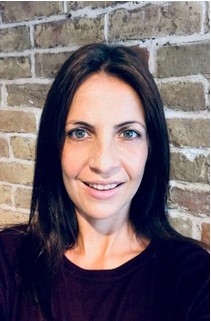Survivor guilt: A cognitive approach
The November BABCP Article of the Month is from the Cognitive Behaviour Therapist (tCBT) and is entitled “Survivor guilt: a cognitive approach” by Hannah Murray, Yasmin Pethania and Evelina Medin
The first client I saw with survivor guilt was a military veteran who had swapped patrols with a fellow soldier, only for his friend to be killed in an explosion. As I tried the usual CBT techniques to address his guilt, I quickly got stuck – my client did not believe he was to blame for the death – it wasn’t even his idea to swap patrols. But still he felt horribly guilty that he had survived when his friend had not and, of all the traumas he had experienced in his career, it was the one event that continued to haunt him decades later.
It made me think that survivor guilt was a little different to other forms of trauma-related guilt. Rather than being linked to thinking errors about preventability, responsibility, or foreseeability of a trauma, it seemed to arise from existential beliefs about unfairness and injustice. We decided to interview our PTSD clients who had survived when others had died. Some told us they felt they had somehow taken the place of the deceased or that the other person had deserved to live more than them. Their survival seemed an aberration in how an ethical world should operate and, despite knowing they had no control over the outcome, felt they had done something wrong just by surviving.
For such a common problem, the available literature on survivor guilt is surprisingly limited. Most models are psychoanalytic, based on the accounts of Holocaust survivors, and there was almost no clinical guidance to be found. This paper is a preliminary attempt to fill that gap by providing a cognitive account of survivor guilt which lays a framework for an intervention. For other therapists who have got stuck when working with this painful emotion, we hope it provides a starting point for helping clients see an alternative meaning in their survival – not as something they have ‘done wrong’ or a breakdown in usual rules of fairness and justice, but a matter of chance, accident, or luck, to which they are entitled and deserving, in a world which is not always fair.
From Richard Thwaites, the Editor-in-Chief of tCBT: Why I chose this article:
By sheer coincidence, tCBT has published two fantastic articles on guilt in the same month and I don’t want either of these to be missed by our readers. Septembers Article of the Month presented a model for working with guilt across disorders using CBT. Within weeks we were able to publish an unrelated paper from Hannah Murray and her colleagues looking specifically at survivor guilt and how to conceptualise this and address it using CBT. I have noticed a gap on the CBT literature for a long time and the work that Hannah is doing fills this beautifully and provides a framework to conceptualise survivor guilt without therapists having to look at models from other psychotherapeutic traditions. It is highly readable and will undoubtedly leave readers keen to go away and do something differently with patients where this is part of their presentation
Author Bio:

Hannah Murray is a Research Clinical Psychologist at the Oxford Centre for Anxiety Disorders and Trauma at Oxford University. She is involved in the development and dissemination of cognitive therapy for PTSD and teaches, writes and supervises widely PTSD.






